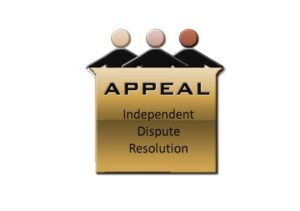 Freddie Mac and Fannie Mae jointly announced the implementation of an Independent Dispute Resolution (IDR) process which is designed to help resolve alleged loan-level breaches of selling representations or warranties that remain unresolved after all other appeals have been exhausted. This was announced in Freddie Mac’s Guide Bulletin 2016-1.
Freddie Mac and Fannie Mae jointly announced the implementation of an Independent Dispute Resolution (IDR) process which is designed to help resolve alleged loan-level breaches of selling representations or warranties that remain unresolved after all other appeals have been exhausted. This was announced in Freddie Mac’s Guide Bulletin 2016-1.
This final, final appeal process will be available for all mortgages with Freddie Mac settlement dates on and after January 1, 2016.
The advantages of this IDR process will be that a neutral arbitrator will be able to render a final, binding resolution to an unresolved case and the costs associated with such a process will surely be less than if the parties had pursued litigation.
It should be noted that the IDR process that has been implemented at this time is only applicable to selling related disputes and does not change the servicing appeal process. Although, it is anticipated that an IDR process for servicing related disputes will be rolled out sometime in the future.
Before saying “what have I got to lose” on a case that is not resolved through the current appeal process, it is stated in the Guide Bulletin that the party that does not prevail at the hearing will be responsible for paying the prevailing party (in addition to the resolution of the demand) a “Cost and Fee Award” in the amount of 10% of the unpaid principal balance of the related mortgage at the time the mortgage was acquired.
So, the ultimate penalty could be quite severe for a lender. In this regard, I would expect lenders to feel quite confident in the merits of their case before pursuing this new option.
[poll id=”106″]
One important aspect of the IDR process is the selection of a neutral arbitrator. However, virtually no information regarding the recruitment, selection, fee structure or reimbursement of this arbitrator is addressed in the 2016-1 Guide Bulletin. Obviously, Freddie Mac (and Fannie Mae) will be providing more substantive information on this topic and other IDR-related issues in the near future.
In my opinion, this IDR process will be well received by the industry. Hopefully, it will generate some discussion among senior HUD management staff as to how they can also offer the industry a final, binding arbitration option on FHA loan transactions in which the department has requested and/or executed Indemnification Agreements.
Stay Tuned!
